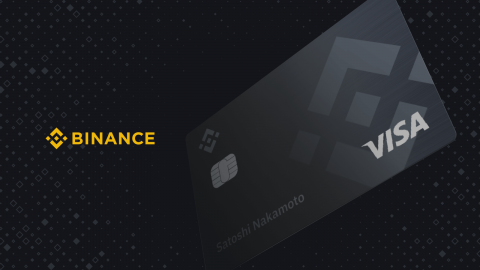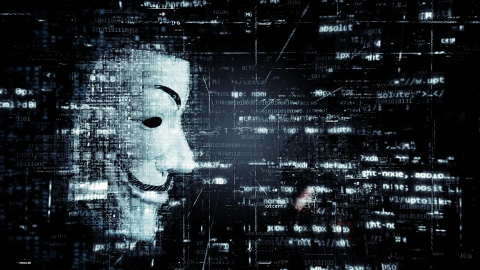The Crypto Winter of 2022 has put an abrupt end to the surging prices of not only cryptocurrencies but also those outrageously priced JPEGS that have made all the headlines in 2021 for their multi-million dollar price tags.
Well-known collections such as CryptoPunks or Bored Apes Yacht Club are down as much as 40% from their all-time highs, and this is before considering the drop in value of ETH.
Many NFT projects are having a hard time going against the current downtrend seen across the market. The tech sector, which hasn’t been hit so hard since the early 2000s, has seen massive losses since early Q2. Finding any safe haven for generating a return is not an easy task.
Despite this, NFTs are still a hot commodity thanks to the teams backing them and the innovative ways holders are rewarded.
It’s about the art! (well, sort of.)

Anyone who has spent even just a few hours in the NFT Twitter space or play around on market places like OpenSea, Rarible or Magic Eden, will quickly figure out that most NFT projects are low-quality money grabs that usually copy popular existing projects and try to siphon off their followers. Of course, one man’s trash is another man’s treasure, and there are some incredible projects out there if you look hard enough, however, the NFT space is stil mired in accusations of money laundering, Ponzi schemes, and just turning a quick buck. It’s not about the art.
A global bear market, as with all things crypto, sweeps the floor clean (excuse the pun). Poor market prices and disinterest serve to deter greed-obsessed traders and short-term speculators that often care little about the real innovation teams are bringing to the table.
On the flip side, this allows founders and developers to reach a real, long-term audience that is committed to the NFT projects they are a part of. Like Binance’s CZ says, builders gonna BUIDL.
One thing is for sure. Amazing projects are going to launch in bear markets just like they do in bull markets. The only difference is, that you could very well pick up the next BAYC gem for peanuts, as opposed to the price of a mansion during the bull market. Art doesn’t always have to be pretty. It’s highly subjective and usually reflects the spirit of whatever is going on in crypto at the time.
Best of all, in bear markets, free mints abound and if a project hits the right narrative as we’ve seen with the recent Goblintown mania, you can do very well.
Advocates, artists, and hard-working teams are now able to shine. Good content, artwork, and features will be prized not because everything is going up, but because it was of good quality or useful to many people.
NFTs with benefits: Why they matter
NFTs have always had a hard time returning value to holders without requiring them to exit the community. Unless a holder had multiple NFTs from the collection, selling their one NFT only provides a one-time payout.
Airdrops
Some projects, such as Yuga Lab’s Bored Apes Yacht Club, have airdropped tokens to holders, which resulted in roughly $100,000 of instant liquidity per Bored Ape and a fraction of this for their other collections, all without selling their NFT. The $APE airdrop could make up for most of the value lost since their all-time high, but holders that bought in earlier are still in the green overall if they were to sell their Bored Ape now.
Token staking
NFT projects often release a token after they have an established community. The token’s use case is often project-related to encourage holders to participate in community events, act as a fee to mint secondary collections, or pay to access features such as raffles, merchandise sales, or GameFi experiences.
To receive these project-specific tokens, holders must stake their NFTs for a pre-determined time period, with rewards scaling to how long it remains locked. Long-term stakers can earn extra tokens over time, and can even create a passive income if buying pressure for the token remains strong.
GameFi staking as a service
Blockchain games have had massive success in raising capital during the last 12 months, but only a few have produced results that resulted in a large enough player base to remain relevant. Axie Infinity has seen massive success with its pokemon-style battle and breeding systems, but few games have a reward system that can be sustained long term.
To prolong content and reward loot randomly similar to defeating a boss in a traditional video game, NFT projects are creating a short-term staking solution. NFTs, often used as characters, can go on missions, often funded with a native token, to possibly return hours later with more native tokens, loot to enhance their mission’s chance of success, or tools to progress in the story within the game.
Referred to as GameFi staking, short-term missions or trips create an immersive gaming experience, encourage daily interaction with your investment, and can create massive rewards if loot is obtained and sold on the platform’s marketplace to other players.
Are NFTs sustainable assets?
Unfortunately, cynics can rightfully describe the majority of NFT projects as scams. So were most ICOs in 2017, however, those that come through these tough times mean real business.
NFT founders are constantly finding new ways to bring value to holders without losing them as community members and the non-fungible token use case has unlimited use cases which will be explored over time.
Airdrops, staking, and GameFi are just some of the solutions that directly generate revenue, but access to features, slashing fees for using their native marketplaces, or granting access to information through protocol-created software can create an opportunity to beat the market if a holder engages with them.
NFTs are not going back into the box and will continue to shine, as will continue to be used as a plausible gateway to bring the masses to the digital asset space, like we’re seeing with social fan tokens and more. However, there is no guarantee that the pricy JPEG you just bought or minted will have any value in a year from now.
NFTs can become almost completely illiquid due to their arbitrary value (it has to be bought by someone else, and cannot be easily traded like Bitcoin for other assets), especially during bad markets. Therefore, NFTs are risky and you should continue to undertake as much due diligence you can before buying anything. As recent events with the likes of Azuki showed, where the founder was accused of being a rug puller, founders, community, and longevity matter, just as in the crypto space.
However, with the metaverse somewhere around the distant corner, Play-to-Earn gaming starting to find its feet, and NFT adoption continuing to proliferate through marketplaces and funds, it’s advisable not to take your eye off the space. It might not be all art, but it’s entertaining as hell.
As always, protect yourself from NFT scams like these.
Looking to keep your NFTs safely in cold storage, but always in reach if needed? Look no further! Check out the CoolWallet’s awesome NFT features and integrations with OpenSea and Rarible.
This article presents the opinions of the author and does not constitute financial advice and is only for educational purposes. Please do your own research and invest very wisely if you do.


